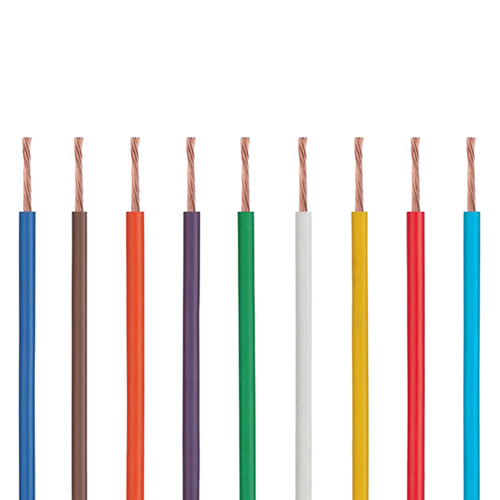Car Power Cables: The Essential Link to Reliable Automotive Performance
2025-04-25
In the world of automotive electronics, a car power cable may seem like a small component, but it plays a vital role in ensuring your vehicle runs smoothly and safely. From powering the audio system to supporting the battery and connecting various electrical systems, car power cables are the unsung heroes of modern driving technology.
What Is a Car Power Cable?
A car power cable is a specialized electrical cable used to deliver power from the battery or alternator to various systems in a vehicle. These cables are designed to handle high current loads and are built with durable materials to withstand heat, vibration, and harsh driving conditions.
They typically feature thick, insulated wiring to safely transfer energy without overheating or short-circuiting. Depending on their purpose, car power cables come in various gauges, lengths, and configurations, from battery cables to amplifier wires.
Why Car Power Cables Matter
In a car, electrical power is required for more than just starting the engine. Power is needed for lights, sensors, entertainment systems, air conditioning, navigation, and more. Car power cables serve as the highway that delivers energy to each of these functions.
Here are a few reasons why car power cables are essential:
- Stable Power Supply: High-quality power cables ensure steady voltage and prevent power loss, which is critical for sensitive electronics.
- Safety: Properly insulated and durable cables reduce the risk of short circuits, overheating, and electrical fires.
- Performance: Upgraded power cables can improve the performance of high-powered audio systems, ensuring better sound quality and reliability.
- Durability: Automotive environments are tough. A good power cable is built to resist corrosion, extreme temperatures, and physical wear over time.
Common Uses for Car Power Cables
Car power cables are found throughout a vehicle, supporting many essential systems:
- Battery and Starter Cables: These heavy-duty cables connect the battery to the starter motor and alternator, delivering the energy needed to start the car and recharge the battery.
- Amplifier and Audio Power Cables: Used in custom car audio systems to connect amplifiers and subwoofers to the power source, enabling clear and powerful sound.
- Inverter Cables: These are used to connect power inverters that allow you to use household electronics in your car.
- Lighting Systems: From headlights to interior LED upgrades, power cables supply consistent current to keep lighting systems functioning reliably.
Tips for Choosing the Right Car Power Cable
Selecting the correct car power cable is important to ensure performance and safety. Here are a few things to keep in mind:
- Gauge Size: Thicker cables (lower gauge numbers) can handle more current. Always match the gauge to the power requirements of your system.
- Material Quality: Look for cables made with pure copper or high-grade copper-clad aluminum for optimal conductivity.
- Insulation and Protection: Ensure the cable has strong insulation to resist heat, chemicals, and abrasion.
- Length: Choose the right length to minimize power loss without leaving excess slack that could cause clutter or interference.
Conclusion
Car power cables may not be the most visible parts of your vehicle, but they are absolutely essential to its operation. Whether you are installing a new sound system, replacing worn-out battery cables, or upgrading your vehicle’s electrical network, choosing the right power cable ensures consistent performance, safety, and efficiency. Investing in high-quality cables is a small decision that leads to long-term reliability on the road.



